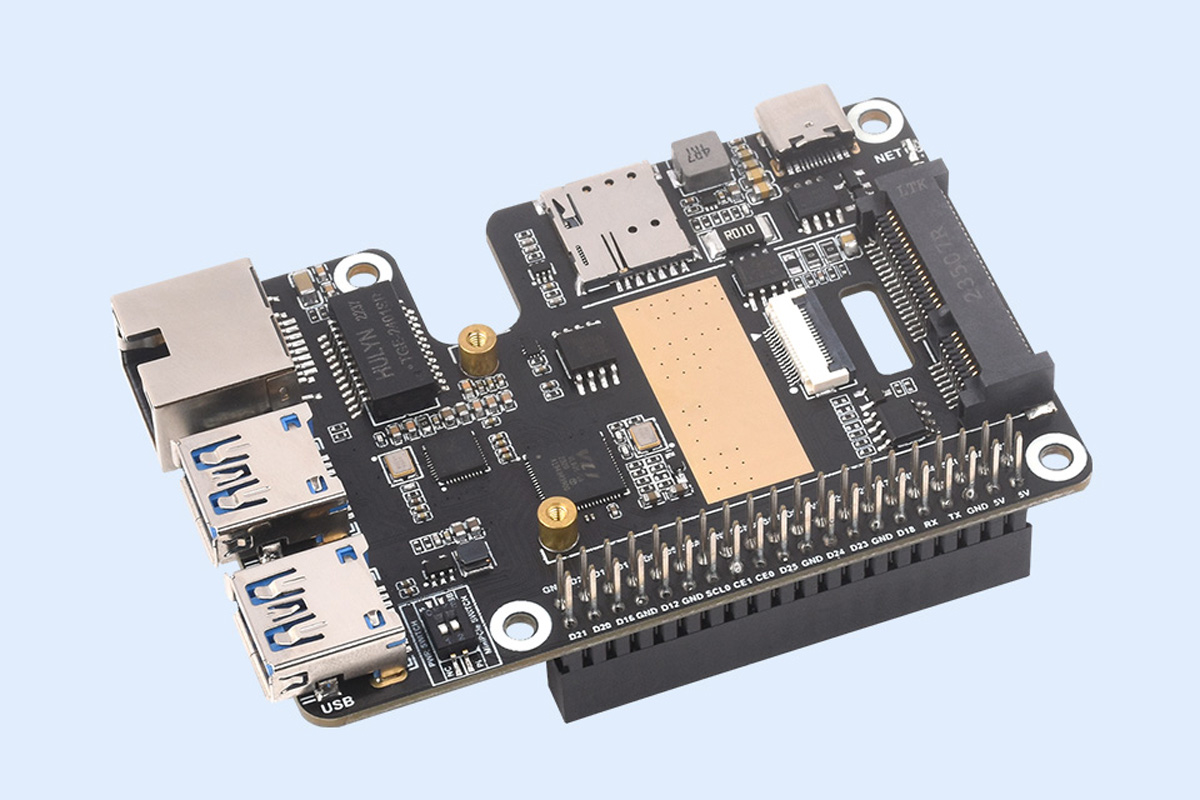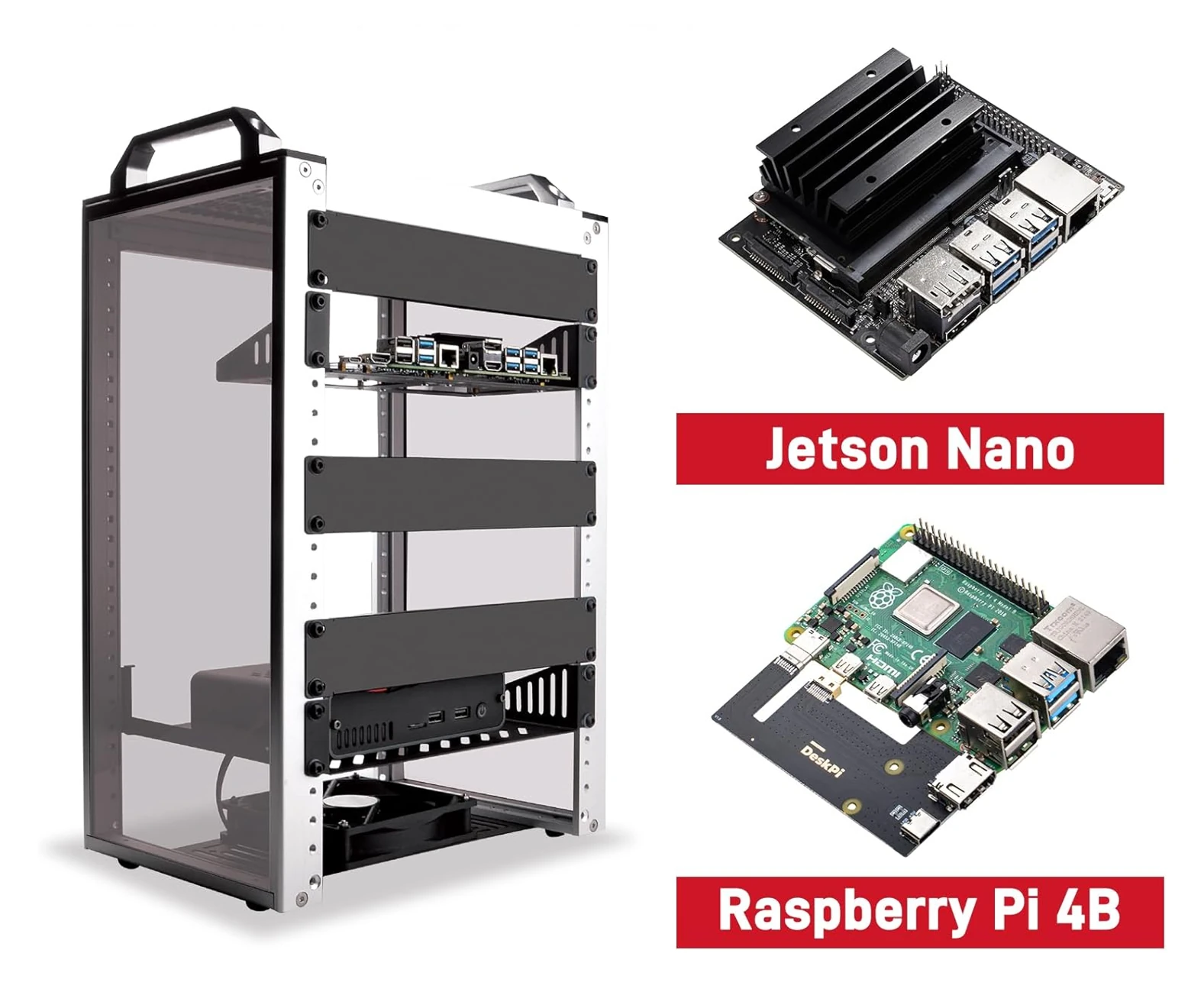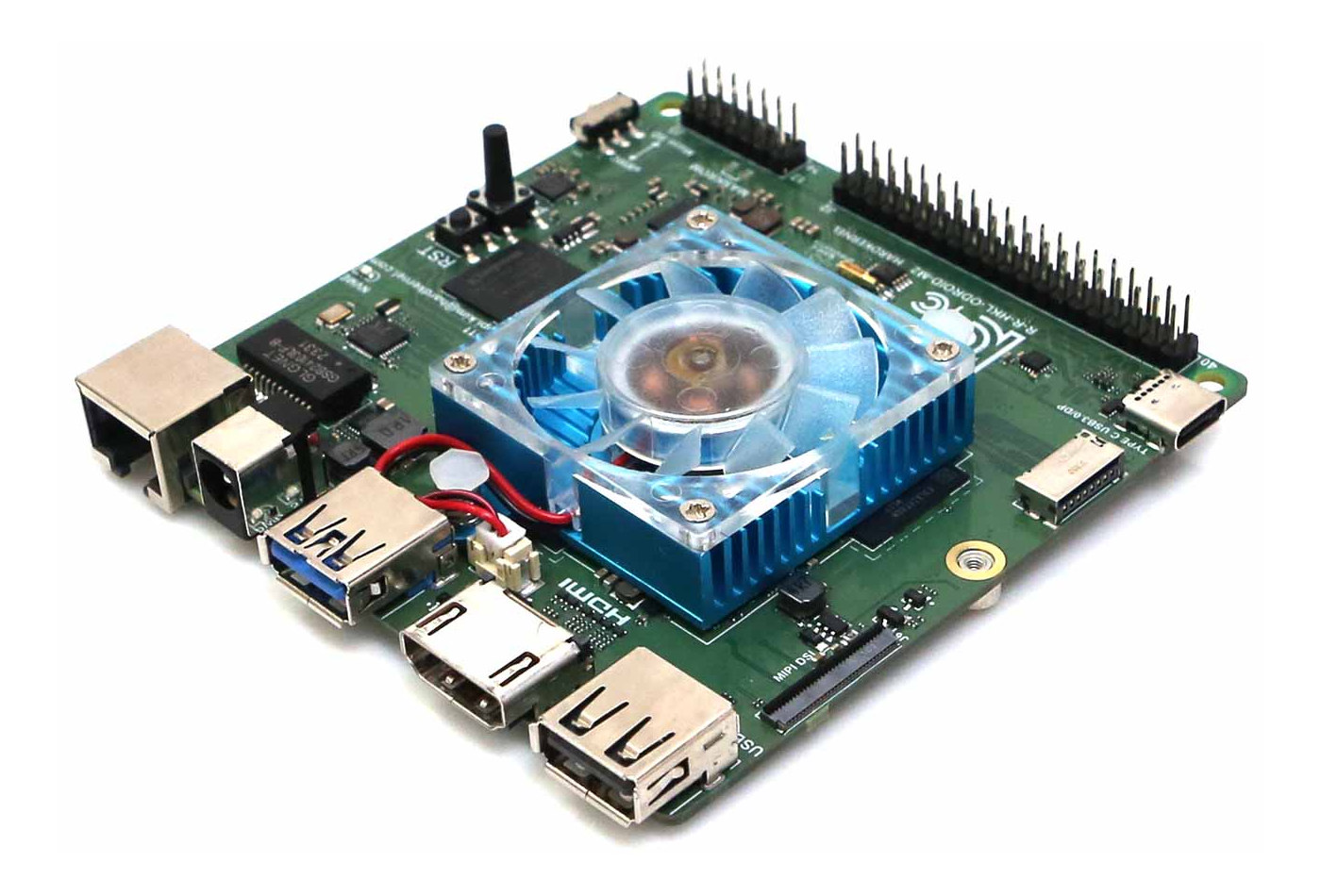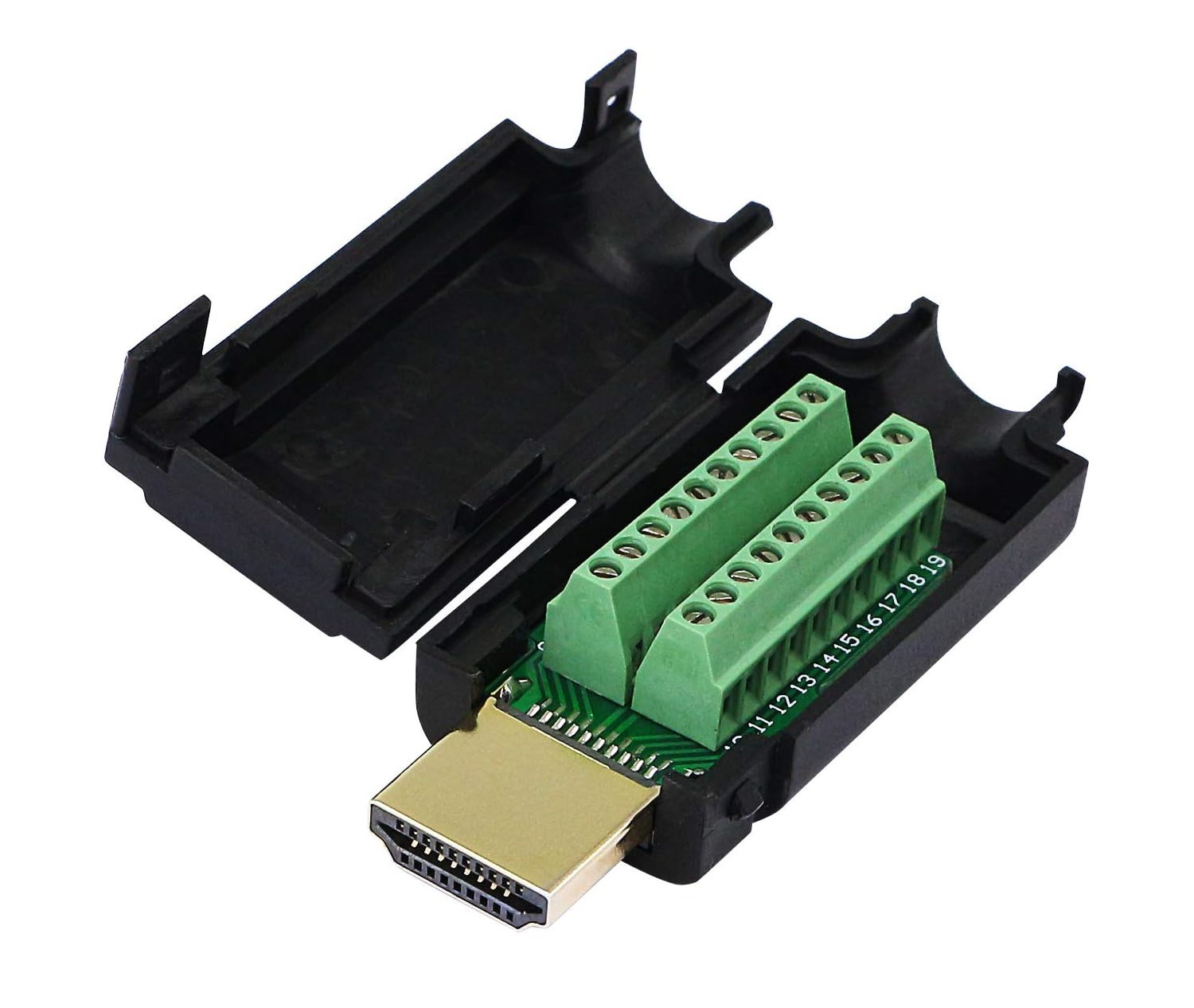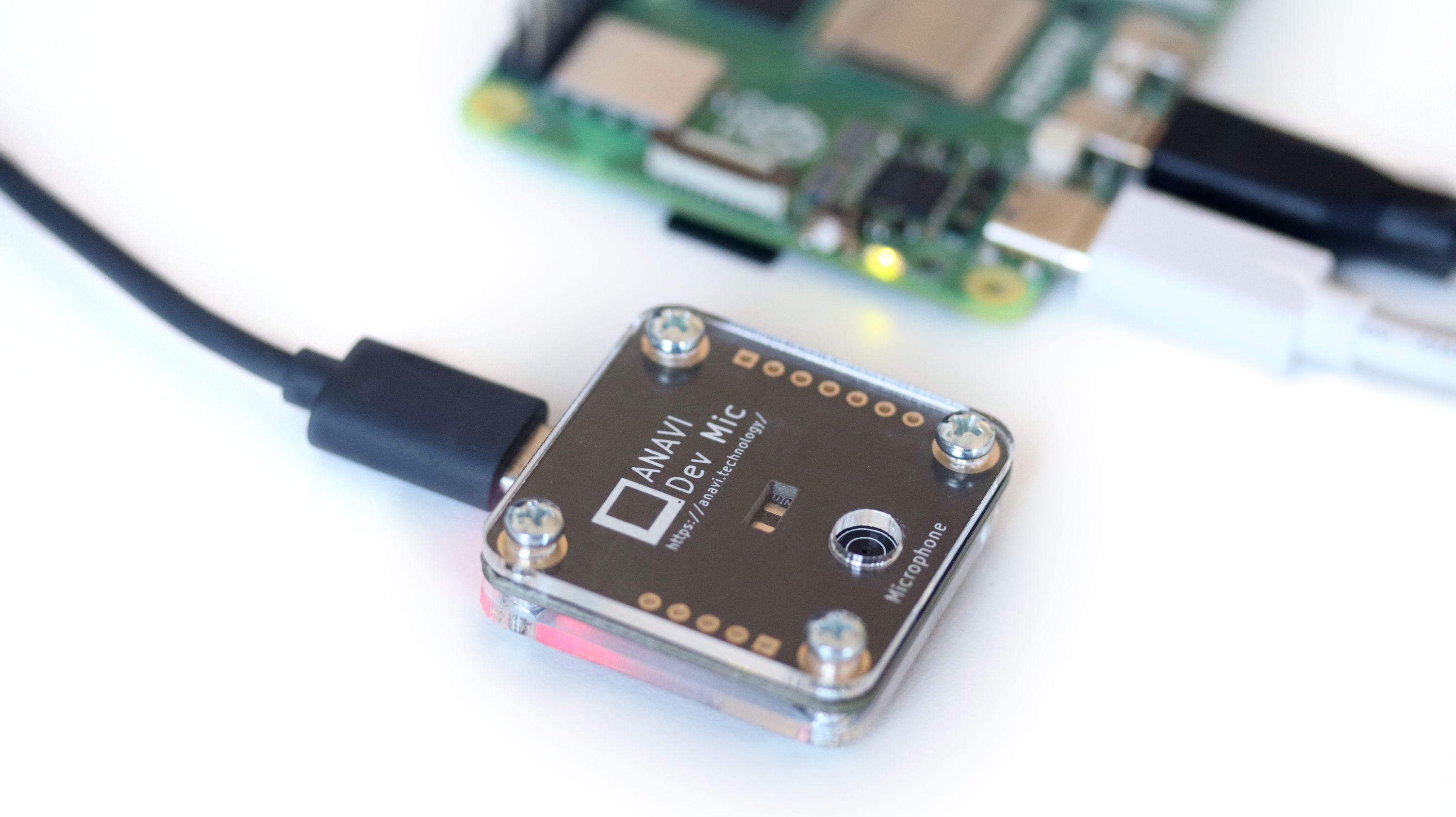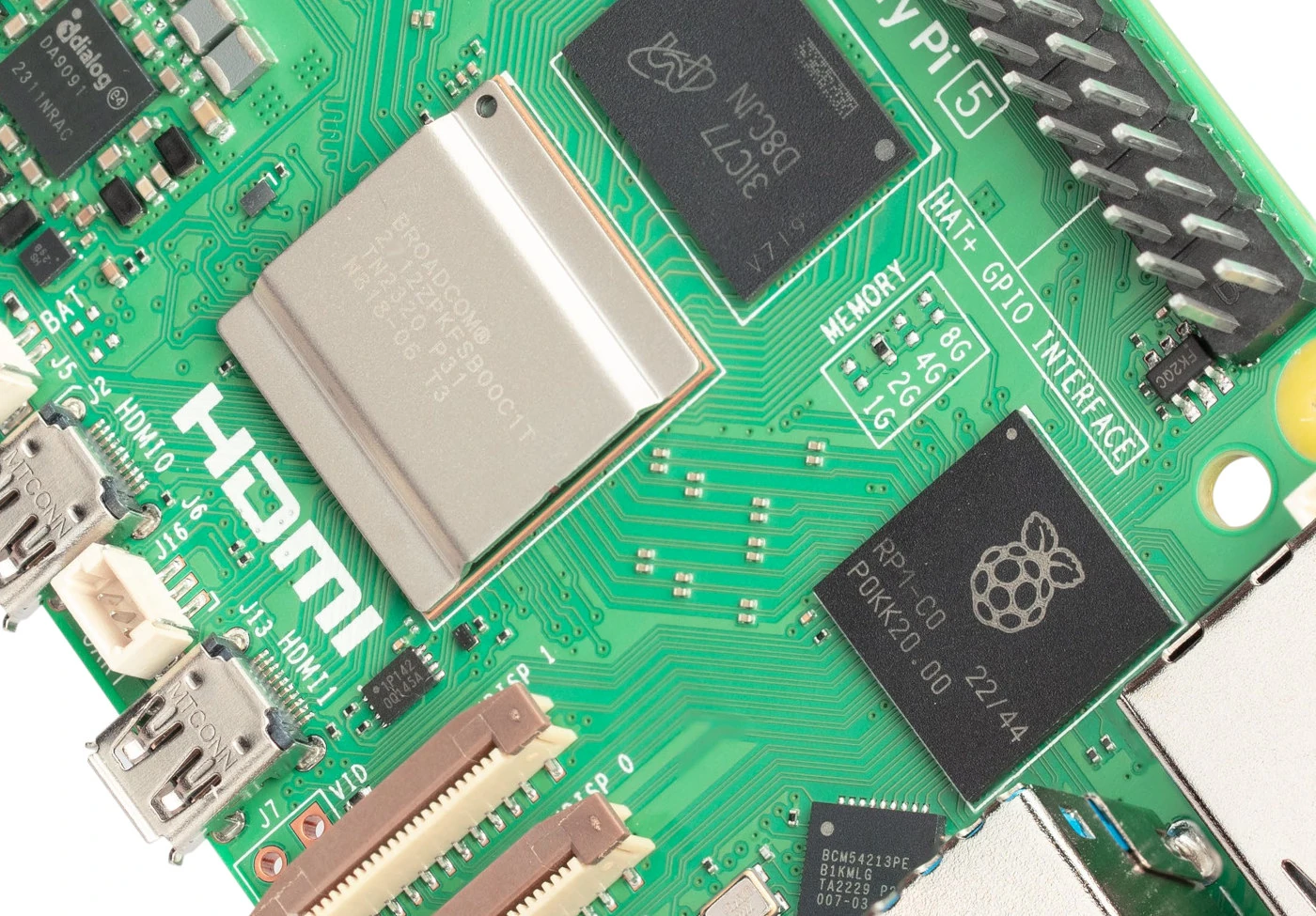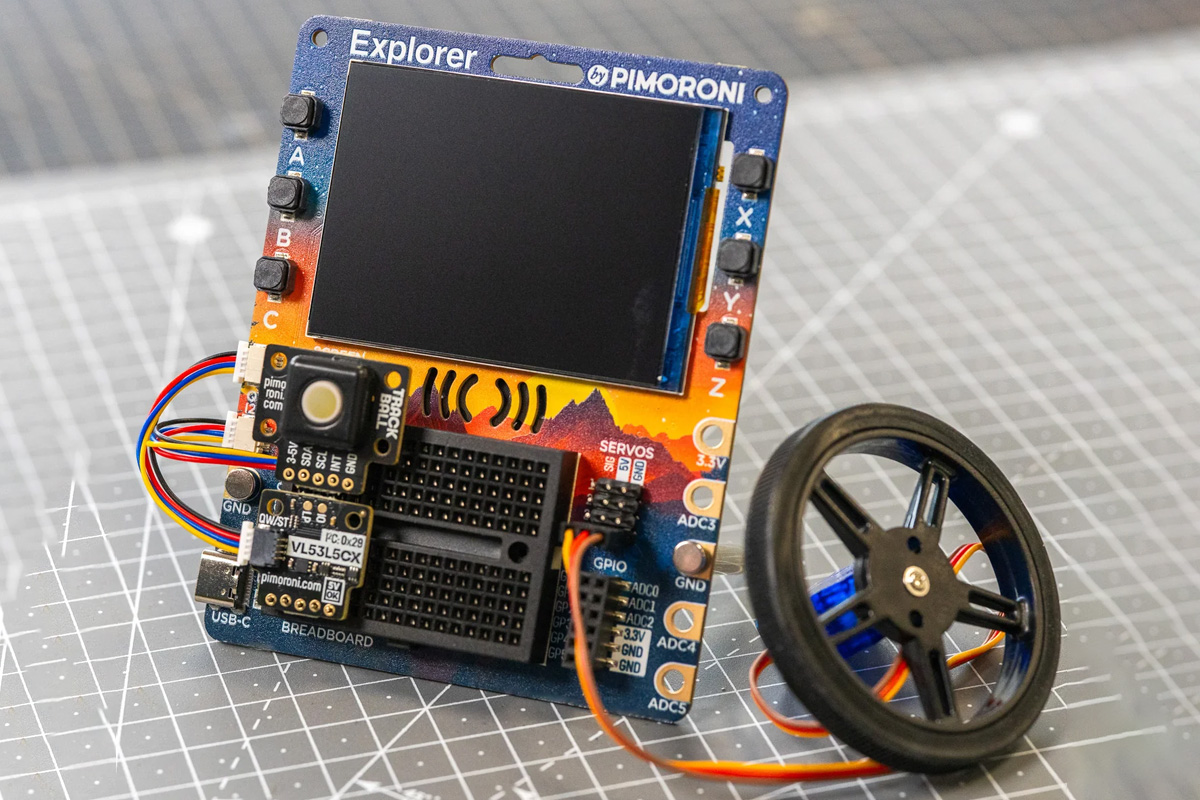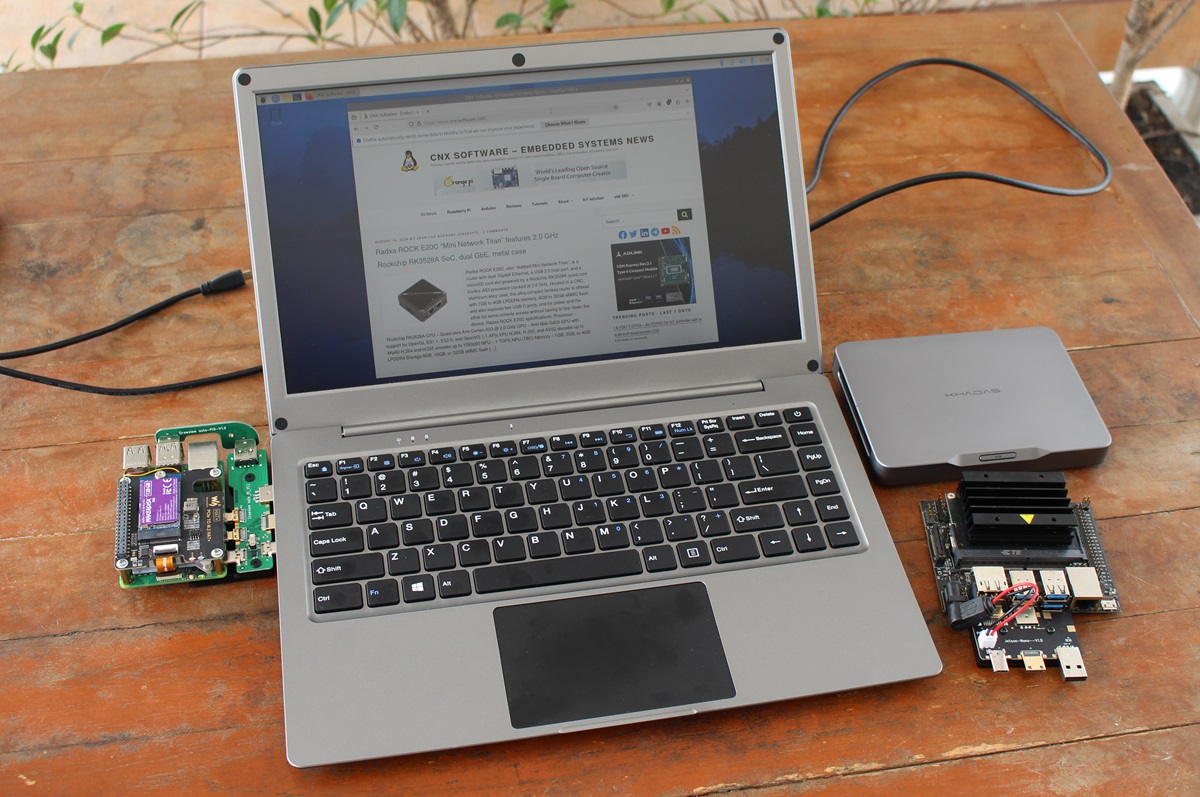Waveshare has recently introduced the PCIe to MiniPCIe GbE USB3.2 HAT+ for Raspberry Pi 5 adding gigabit Ethernet, a mini PCIe socket for 4G LTE, and two USB 3.2 Gen1 ports to the popular Arm single board computer. The HAT+ is compatible with IM7600G-H-PCIE/EG25-G-mPCIe series 4G LTE modules with 4G/3G/2G global band and GNSS positioning. Additionally, it has a gigabit Ethernet with an onboard RJ45 port, two USB 3.2 Gen1 ports, an onboard power monitoring chip, and EEPROM. All these features make this HAT useful for applications such as industrial routers, home gateways, set-top boxes, industrial laptops, industrial PDAs, and much more. We have previously written about many different types of HATs for the Raspberry Pi 5 designed by Waveshare including the Waveshare UPS HAT (E), the Waveshare PoE HAT (G), the Waveshare PCIe to USB 3.2 HAT+, and many other products. Feel free to check those out if you […]
DeskPi RackMate T1 is a U8 desktop rack designed for Raspberry Pi, NVIDIA Jetson, mini-ITX motherboards, and more
DeskPi RackMate T1 is a U8 desktop rack especially suited to SBC users with support for Raspberry Pi SBCs, NVIDIA Jetson developer kits, Raxa ROCK 5B pico-ITX SBC, mini-ITX motherboards, and more. The RackMate T1 chassis is made of aluminum alloy and acrylic frame and its 8U form factor (406 (H) x 280 (L) x 200 (W) mm) allows it to be placed either on a desk or a floor of a home lab. DeskPi RackMat T1 highlights: Mounting holes on all trays Raspberry Pi 3B, 3B, +4B, and DeskPi aux board bring HDMI and USB-C to the front (M2.5 screws) – star holes NVIDIA Jetson Nano developer kit (M2.5 screws) – square holes Radxa ROCK 5B pico-ITX SBC (M3 screws) – round holes 2.5-inch drives Screw kits with M2.5 screws and standoffs, M3 screws, and a screwdriver Dimensions – 406 x 280 x 200 mm (H x L x […]
ODROID-M2 low-profile SBC features Rockchip RK3588S2 SoC, up to 16GB LPDDR5, 128GB eMMC flash
Hardkernel has just launched the ODROID-M2 low-profile SBC based on a Rockchip RK3588S2 octa-core Cortex-A76/A55 AI SoC with up to 16GB LPDDR5, 64GB eMMC flash, an M.2 PCIe socket, support for three displays through HDMI, USB-C, and MIPI DSI interfaces, gigabit Ethernet, and more. The ODROID-M2 follows the ODROID-M1 and ODROID-M1S single board computers based on respectively Rockchip RK3568 and RK3566 quad-core Cortex-A55 processors, but a significantly more powerful Rockchip RK3588S2 processor, and a larger 90x90mm form factor to accomodate for extra features and interfaces. ODROID-M2 specifications: SoC – Rockchip RK3588S2 CPU – Octa-core processor with 4x Cortex-A76 cores @ up to 2.3 GHz (+/- 0.1Ghz), 4x Cortex-A55 cores @ up to 1.8 GHz GPU – Arm Mali-G610 MP4 GPU @ 1 GHz compatible with OpenGL ES 3.2, OpenCL 2.2, and Vulkan 1.2 APIs VPU – 8Kp60 video decoder for H.265/AVS2/VP9/H.264/AV1 codecs, 8Kp30 H.265/H.264 video encoder AI accelerator – 6 […]
HDMI to screw terminal adapters could be useful for Raspberry Pi RP2040 and RP2350 boards
The very idea of an HDMI to screw terminal adapters maybe seem moronic at first, but in an era of programmable IOs (PIO), and high-speed serial transmit (HSTX), those could end up being useful for boards or modules based on Raspberry Pi RP2040 or RP2350 since they’ve all be shown to support DVI output through HDMI connectors. There are a few boards that integrate an HDMI port such as the Olimex RP2040-PICO-PC, Solder Party RP2xxx Stamp Carrier XL, or Adafruit Feather RP2040 among others, but most boards don’t include an HDMI port. What they do typically have are GPIO headers, and an HDMI to screw terminal adapter would allow users to easily add an HDMI port to their existing board without soldering simply by using jumper wires, or with a bit more work an old HDMI cable. All HDMI to screw terminal adapters are pretty basic with an HDMI male […]
ANAVI Dev Mic is a digital omnidirectional microphone based on Raspberry Pi RP2040 MCU (Crowdfunding)
The ANAVI Dev Mic is an open-source microphone board from ANAVI Technology in Plovdiv, Bulgaria powered by the Seeed Studio XIAO RP2040 module and an omnidirectional digital microphone from STMicroelectronics. It is a compact and affordable product that outperforms USB microphones in artificial intelligence and machine learning voice applications. The design is simple and unassuming, with the Seeed Studio XIAO RP2040 module in the center, surrounded by a USB-C port for power and programming and 9 GPIO pins for extensibility. The STMicroelectronics MP23DB01HP microphone (MK1) is mounted on the top of the board with a small hole on the bottom. It is a compact, low-power, digital MEMS microphone capable of capturing sounds from different directions with very low distortion. It uses a PDM (Pulse-Density Modulation) interface created via the programmable inputs/outputs (PIO) on the RP2040. The ANAVI Dev Mic is applicable for conducting AI/ML research, building a voice recognition platform, […]
The Raspberry Pi 5 SBC is now available with 2GB RAM for just $50
The Raspberry Pi 5 has now a cheaper variant with 2GB of RAM going for just $50 following the launch of the Broadcom BCM2712 SBC in October 2023 with either 4GB or 8GB LPDDR4X-4267 SDRAM for respectively $60 and $80. At the time of the release, we also noted that cheaper variants with 1GB and 2GB RAM should become available later on simply because of the options on the silkscreen. When Eben Upton contacted CNX Software about the release of the Raspberry Pi 5 2GB RAM he explained that Raspberry Pi was “bringing the power of our most modern platform, and all of the optimisations we’ve developed since the launch of the larger memory SKUs last autumn, to a new lower price point”. Raspberry Pi 5 2GB RAM specifications: SoC – Broadcom BCM2712 (cost-optimised D0 stepping) CPU – Quad-core Arm Cortex-A76 processor @ 2.4 GHz with crypto extensions, 512KB per-core […]
Pimoroni Explorer board is a Raspberry Pi RP2350-based learning platform with 2.8-inch LCD, breadboard sensors and more
The Pimoroni Explorer board is an electronic prototyping board built around the Raspberry Pi RP2350 chip with a 2.8-inch LCD screen, a speaker connector, and various I/Os, which makes it easy to build circuits, prototype projects, and even make small robots. It also features a mini breadboard, tactile buttons, and crocodile clip terminals, making it suitable for both beginners and experienced makers. The RP2350 MCU was recently released by Raspberry Pi Limited along with the $5 Raspberry Pi Pico 2 board. Since that initial release, we have seen many RP2350-based development boards like the Cytron MOTION 2350 Pro, the Bus Pirate 5XL and 6, and many other development boards released, feel free to check those out if you are looking for development boards built around the RP2350 MCU. Pimoroni Explorer board specifications Microcontroller – Raspberry Pi RP2350B MCU CPU Dual-core Arm Cortex-M33 @150MHz with Arm Trustzone for secure boot Dual-core 32-bit […]
CrowView Note Review – A 14-inch laptop shell designed for Raspberry Pi 5 and Jetson Nano Developer kit
Elecrow CrowView Note is a laptop shell with a 14-inch Full HD display, an 84-key QWERTY keyboard with a touchpad, built-in speakers and microphone, and a 5,000 mAh battery that’s specially designed for the Raspberry Pi 5 and the Jetson Nano Developer Kit thanks to adapters. However, it can be used with any machine with either a full-featured USB-C port or spare USB and HDMI ports. So it works with any Raspberry Pi model, Windows, Mac OS, or Linux computers, Android smartphones, PS4/PS5 game consoles, and more. This type of laptop shell has been around for years with the first one being the Laptop shell for the Motorola Atrix 4G smartphone introduced in 2011, and more recently Nexdock launched a range of laptop shells such as the Neckdock XL 15.6-inch touchscreen display and wireless charging. The CrowView Note differentiates itself with its low price and direct compatibility with the Raspberry […]


